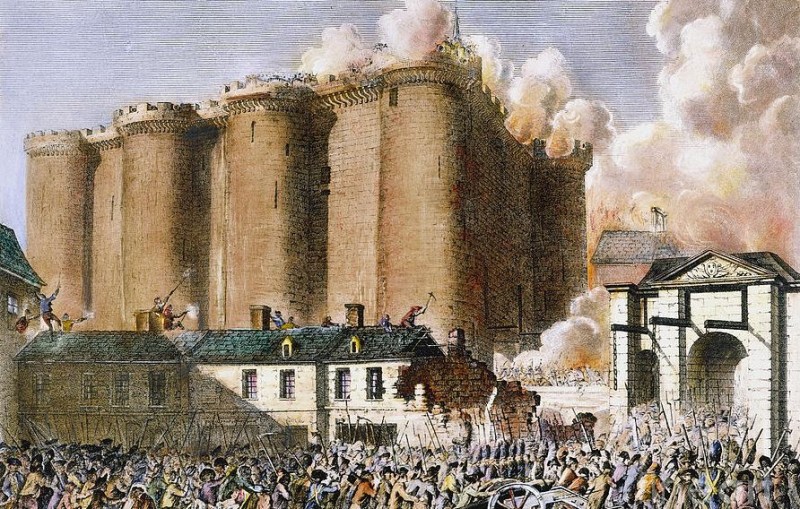
The French Revolution, which spanned from 1789 to 1799, was a period of immense social and political upheaval in France. It marked a pivotal moment in history, leading to the overthrow of the monarchy and the rise of democracy. This article will delve into the causes, key events, and consequences of the French Revolution, shedding light on its profound impact on French society and the world at large.
1. Introduction: The Prelude to Revolution
The seeds of the French Revolution were sown in a society plagued by economic hardships, social inequality, and an absolute monarchy. The rigid social structure divided the French population into three distinct estates, with the clergy and nobility enjoying privileged positions while the commoners suffered under oppressive conditions. As discontent grew, the people demanded change and began to question the authority of the monarchy.
2. Economic and Social Inequality: A Catalyst for Change
One of the primary catalysts for the French Revolution was the stark economic and social inequality that existed within the country. The burden of taxation fell heavily on the commoners, while the nobility and clergy enjoyed exemptions. This glaring disparity fueled resentment and deepened the divide between the privileged and the oppressed.
3. The Estates-General and the Declaration of the Rights of Man and of the Citizen
In an attempt to address the grievances of the people, King Louis XVI convened the Estates-General in May 1789. However, the meeting quickly turned into a platform for radical political discourse, with the Third Estate demanding equal representation. Frustrated with the lack of progress, the representatives of the Third Estate declared themselves the National Assembly and drafted the Declaration of the Rights of Man and of the Citizen, proclaiming liberty, equality, and fraternity as fundamental rights.
4. The Fall of the Bastille and the Storming of Versailles
Tensions continued to escalate, and on July 14, 1789, the French people stormed the Bastille, a symbol of royal authority and oppression. The fall of the Bastille marked a pivotal moment in the revolution, demonstrating the power of the people and their determination to challenge the monarchy. Subsequently, a wave of uprisings spread throughout the country, culminating in the women's march on Versailles, forcing the royal family to return to Paris.
5. The Reign of Terror and Robespierre's Rule
As the revolution progressed, a radical faction known as the Jacobins, led by Maximilien Robespierre, gained influence. The period known as the Reign of Terror ensued, characterized by mass executions and political purges. Robespierre's Committee of Public Safety wielded significant power, and those deemed enemies of the revolution faced the guillotine. The Reign of Terror ultimately led to Robespierre's downfall and marked a turning point in the revolution.
6. The Rise of Napoleon Bonaparte
Amidst the chaos, Napoleon Bonaparte emerged as a prominent military and political figure. His military successes and charismatic leadership propelled him to power. In 1799, Napoleon staged a coup d'état, overthrowing the existing government and establishing the Consulate. This marked the end of the French Revolution and the beginning of Napoleon's rule.
7. Impact on France and Europe
The French Revolution had a profound impact not only on France but also on Europe as a whole. The revolution's ideals of liberty, equality, and fraternity resonated across borders, inspiring other nations to challenge the status quo. The revolutionary fervor led to the spread of nationalism, the erosion of monarchies, and the rise of democratic movements across the continent.
8. Legacy of the French Revolution
The French Revolution left a lasting legacy that shaped the course of history. It dismantled the monarchy, abolished feudalism, and introduced significant social and political reforms. The Revolution's principles of equality and democracy laid the groundwork for future revolutions and influenced the development of modern political systems.
9. Conclusion
The French Revolution was a watershed moment in history, marking the transition from a society dominated by an absolute monarchy to one driven by principles of equality and democracy. It was fueled by socioeconomic disparities, political discontent, and a desire for fundamental rights. Although the revolution was accompanied by violence and upheaval, it paved the way for profound social and political transformations, leaving an indelible mark on France and the world.
Bengal Panchayat Poll Results: TMC Bags Over 34,000 Gram Panchayat Seats
Supreme Court Declines Urgent Plea, Summons Makers of 'Adipurush' in Intensifying Legal Battle
ISRO to launch Chandrayaan-3 on Friday, Know All about the mission